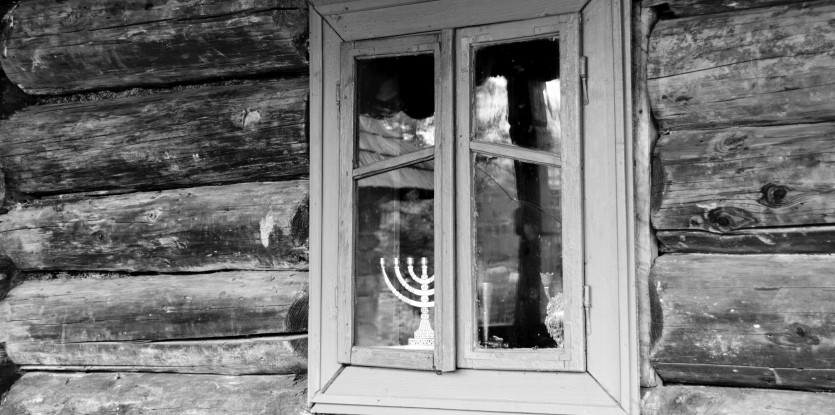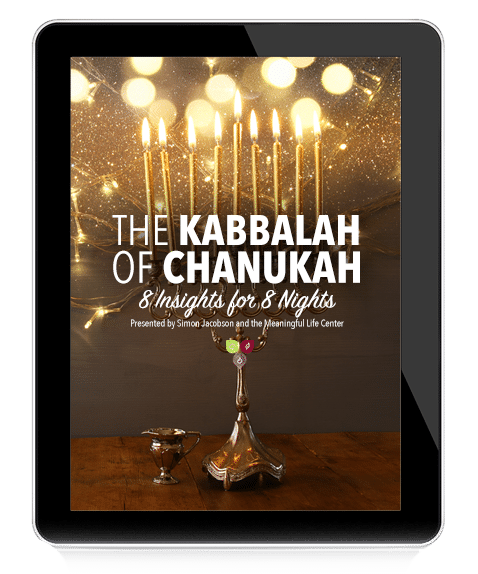Judaism is one thing with the Torah, and Torah too suffers from a stereotype: That it is a religious book for Jews.
In actuality, Judaism is not a religion. Nor is it a culture, a race, an ethnic group or a historical phenomenon. Judaism is a way of life and Torah is a universal blueprint for all life.
This does not negate the fact that the Torah addresses the specific role of Jews, as it addresses all aspects of existence. Like a true blueprint, the Torah lays out a plan for every detail of our multifarious universe. At Sinai the Divine mandate was delivered with a voice that rang across one end of the globe to the next, declaring a comprehensive roadmap for the entire human race and the entire world to achieve personal and global redemption.
Nowhere is this more apparent than in the holiday of Chanukah. The festival of Chanukah commemorates the victory that occurred over 2000 years ago when a small band of Jews, in the name of freedom from oppression and freedom of religion, battled the largest army in the world and were victorious. The essential theme of Chanukah, thus, could not be more universal: Freedom – celebrating the dominance of spirit over matter; the transformation of darkness into light; and the victory of the virtuous few over the corrupt majority.
And we celebrate this through light, by kindling a Menorah “at the door facing the outside” Chanukah is a public, not a private, holiday, with a prominent Menorah radiating into the dark street, illuminating the surroundings.
For this reason you may have noticed in recent years the public displays of Chanukah Menorahs illuminating communities worldwide – to illuminate the world, even its darkest corners, with the universal message of freedom.
There was a time when Chanukah’s message was not universally embraced. Indeed, the very founding of modern democracy, beginning with American and French Revolutions, is based on the Chanukah theme.
In 1789, just 218 years ago a group of revolutionaries, in opposition to the great world powers of that time, wrote the Bill of Rights in order to safeguard the basic individual freedoms of the human race – freedom of religion, speech and press. Religious persecution was the impetus for many to leave the shores of Europe for the New World so it is not surprising that the first amendment stressed the importance of freedom of religion. The Founding Fathers understood this to be central to all other liberties as it embodies the freedom to pursue your own belief system, your personal way of finding transcendence.
The message of Chanukah is as relevant today as it was two millenniums and two centuries ago. Every year we celebrate the power of freedom over oppression with the kindling of the Menorah, honoring the victory of light over darkness.
As the sun sets during these eight days (November 27-December 4), people around the world will light candles, each night adding a flame, until a total of eight flames illuminate the night. As we kindle the Chanukah lights, listen carefully to the flames and they will tell you a story, a story that will empower you to live a more profound meaningful life, enabling you to face every challenge and overcome difficulty. Sit near the flames and study them quietly.
Chanukah’s flames teach us many lessons – from the personal to the global, from the psychological to the theological. Look closely at the details of Chanukah – the Menorah, the history, the number of flames – and they reveal the deeper nature of our souls and of existence.
Here are some of their lessons.
Lit at sundown, as the shadows of night descend, the Menorah reminds us that the way to eliminate darkness – to rid the world of selfishness, negativity, hatred and greed – is to kindle the lights of knowledge, generosity, faith and love.
The Menorah is placed in the window (or doorpost) of one’s home or in a public place so that the light shines out into the street. This public display represents our responsibility to bring the light of freedom, morality and spirituality not only into our own homes, but also into the lives of others and into the world.
Just as a flame lights another without diminishing itself, so too by sharing yourself you become enhanced rather than diminished. Every day we must increase illumination of ourselves and our environment – each day adding another good deed, lighting an additional flame.
On a more personal level, a flame represents the soul of a person, the G-dliness that is inherent in each of us. Every person has an individual contribution to make, a unique way of illuminating the world. Chanukah celebrates the power of the soul reminding us that although there are 6 billion people in the world and many forces that de-personalize our lives, each flame, each soul, brings a special and distinctive light into the world.
“The flame of G-d is the soul of a human being,” says the Torah. As flames warm and illuminate their environment, so too you can use your soul to infuse life with warmth and light. Unlike all other physical entities that are drawn earthward, the dancing flames flicker upward defying gravity. Likewise your soul, not satisfied with mere physical comforts, aspires up toward something beyond.
Chanukah tells yet a deeper narrative, a tale that penetrates the darker shadows of our lives. The Menorah shines a tunnel back through time to the aftermath of a great victory in which a small band of Jews defeated the might of the Greek Empire. In amongst the debris of the desecrated Temple the Maccabees searched ceaselessly until they found a single sealed cruse of olive oil that miraculously burnt for eight days. When you are defiled, when your inner Temple has been desecrated and there is no oil to be found, you have the power to reach deeper inside and discover light. The soul always remains intact like a “pilot light.” When you light your Menorah under such difficult circumstances, creating light in the darkest moment, that light can never be extinguished. The light that has dealt with challenge, that has transformed pain into growth, is a light that transcends nature and transforms darkness into light.
This power to transform darkness must come from a place beyond the conventional. We therefore light eight candles, the mystical number of transcendence and infinity, one beyond the number seven that represents the natural cycle. There is a natural limit to all human endeavors, to all human knowledge. In order to pierce darkness with light, however, you can’t just rely on the natural, but need to reach a deeper resource which is the eighth dimension introduced by Chanukah – the power of transcendence that enables us to go beyond our natural limitations and transform darkness into light.
These elements of Chanukah – the eight flickering flames, the miracle of the oil, the light shining into the dark street – beckon us to connect to the power of our soul. Our soul rises like a flame toward that which transcends itself, not only repelling darkness as is the nature of all light, but transforming the darkness into light.
The festival of Chanukah calls us all to revolution, a revolution of light fought over centuries by all people seeking true freedom. The Festival entreats us to reclaim our most basic freedom, the freedom to rise above our subjective, limited perspective and reach for the above and beyond. As citizens of the world, it is our duty and privilege to add to the forces of light both at home and abroad in a steadily growing measure.









this is a very inspiring article relating chanukah to people of all faiths and teaching us to keep the soul alive and look inside ourselves to continue to grow spiritually as good human beings.
Wonderful sensitive,informative article! They always are.
Unfortunately the dates for Chanukah are incorrect! Nov. 27 to Dec. 5 I believe is correct.
It never fails to amaze me…how truly meaningful this Rabbis perspective is…how truly relevant his insights are to what is occurring in my life at the time…how much I am affected by his articles…how full of light these words are to bring me back to re-membering, re-connecting back to where the light truly emanates. This touches my soul and gives me the wings to soar again.